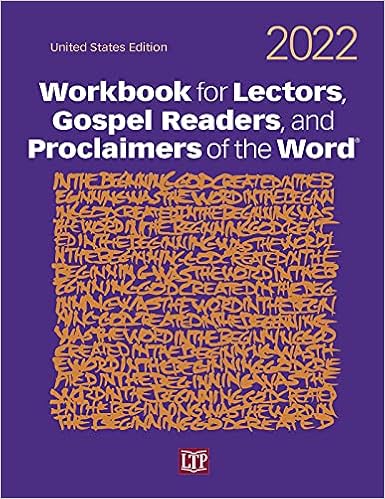I'm still practicing for my Lector assignment for the Thirteenth Sunday in Ordinary Time. Specifically 1 Kings 19: 16bm 19-21, is my conundrum. How to read "Go back!"
To read it didactically would be a command. And I can't help but interpret a didactic reading of "Go back!" as "Well if you have to do that, then forget about it. Come, or Go back!"
So I'm tending towards reading it very softly and gently tilting my head or maybe shrugging my shoulders to convey the idea that it's OK with Elijah that Elisha goes back. I ran this idea to my friend who reads, also. She doesn't think I should read it the way I'm thinking. She thinks I should read it didactically and the Holy Spirit will move each person in ways appropriate to each.
But!
Then why did I never understand it the way Elijah meant? I always wondered--always, always, wondered why Elisha was accepted by Elijah when Elijah snapped "Go back!" Besides, I think the Holy Spirit is moving me to read it very gently to convey that Elijah accepts Elisha's reasons to go back.
I know. I drive myself crazy.
Here's the rub. You see the book above. The introduction explains how lectors should read. And it agrees with my friend. The lector should read in as straightforward way as possible rather than use inflection, pitch, or movements.
I'm shocked. It doesn't make sense. Does it make sense to just didactically read questions, commands, and exhortations in the same tone The book also tells the Lector not to smile!!! That's terrible.
Here's my take on Lectoring:
You start practicing a month before your assignment. You do lectio divina on your reading. If you are reading the First Reading, the Responsorial Psalm, and the Second Reading, then that's three lectio divinas. For the First Reading, also read the Gospel and do lectio divina on that. For the Second Reading, look at the Second Readings for the previous couple of weeks.
A week before you practice reading aloud. This will be a surprise because how you pronounce in your mind may not be what you say. You may stumble, stutter, slur, etc., and you would have never have known that unless you say it aloud. Besides, there are names and Hebrew words that you need to practice.
Now, the reading itself has come. First, and very important, is smile. You smile first to the entire congregation because you are reading Good News and your shoes aren't too tight, so you don't have a painful expression on your face. Also, before Mass begins, pick out three people--one near the left wall of the church, and one near the right, and one in the middle. Introduce yourself to them and tell them that you are the lector for the Mass and you will be looking at them to see if they can hear you. If they can't they are to shake their heads "No" and cup one hear. If you are talking too fast they should motion with their hands to slow down. Likewise they need to use their hands to signal that you should speed up. And these are the people you smile to.
Now, begin and proclaim. If you've prepared like I just instructed everyone will hear the Good News.





No comments:
Post a Comment